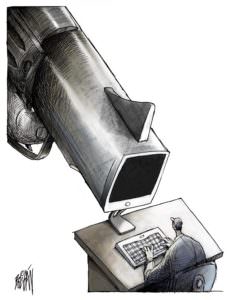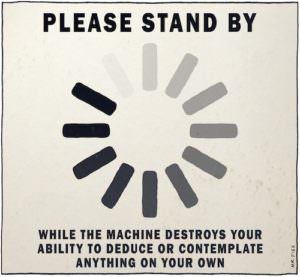Malware ‘Worm’ Could Take Down World Internet
Since sometime in 2008, more than 12 million computers around the world have been infected by a highly encrypted "worm," or self-updating type of malware called Conficker, that allows remote access and control of a network of those computers, essentially creating the most powerful computer in the world.
Since sometime in 2008, more than 12 million computers around the world have been infected by a highly encrypted “worm,” or self-updating type of malware called Conficker, that allows remote access and control of a network of those computers, essentially creating the most powerful computer in the world.
In his book “Worm: The First Digital World War,” author Mark Bowden narrates the details of how Conficker was discovered and explains the dangers such a huge network of computers working together could have if they are used to commit crimes or wage wars.
In an interview with NPR’s Terry Gross, Bowden tells of how the U.S. government seems to be seriously lacking in cyberintelligence, “even at agencies that ought to have been very seriously involved, who were responsible for protecting the country.”
Although Bowden’s warnings about the worm come across as overinflated scare tactics, you can decide for yourself when his book comes out Oct. 14. –BF
Your support matters…NPR:
The gigantic networked system created by the Conficker worm is what’s known as a “botnet.” The Conficker botnet is powerful enough to take over computer networks that control banking, telephones, security systems, air traffic control and even the Internet itself, says Bowden. His new book, Worm: The First Digital World War, details how Conficker was discovered, how it works, and the ongoing programming battle to bring down the Conficker worm, which he says could have widespread consequences if used nefariously.
“If you were to launch with a botnet that has 10 million computers in it — launch a denial of service attack — you could launch a large enough attack that it would not just overwhelm the target of the attack, but the root servers of the Internet itself, and could crash the entire Internet,” he says. “What frightens security folks, and increasingly government and Pentagon officials, is that a botnet of that size could also be used as a weapon.”
Independent journalism is under threat and overshadowed by heavily funded mainstream media.
You can help level the playing field. Become a member.
Your tax-deductible contribution keeps us digging beneath the headlines to give you thought-provoking, investigative reporting and analysis that unearths what's really happening- without compromise.
Give today to support our courageous, independent journalists.






You need to be a supporter to comment.
There are currently no responses to this article.
Be the first to respond.